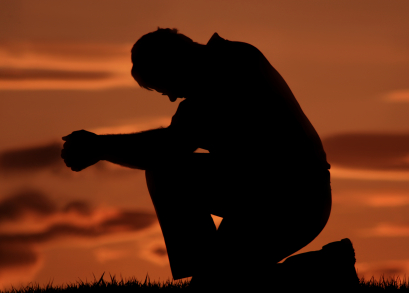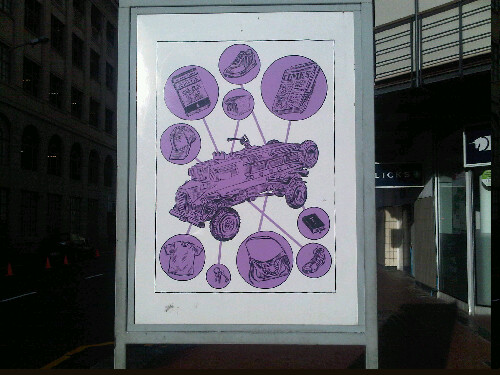Some years ago when I was preparing to start my doctoral research I came across a wonderful book by Andrew Newberg and Eugene d'Aquili called "Why God won't go away: Brain science and the biology of belief".
I had come to the discipline of neuro-theology through my interest in quantum theory and the new science (which I covered in some earlier graduate work - my book 'Christ at the centre' has a chapter that seeks to rephrase the doctrine of Christ in more contemporary language, so instead of the traditional Greek philisophical concepts of ousia and hypostasis I sought to rephrase the unity of the divinity and humanity of Christ using quantum physics, theoretical microbiology and transpersonal psychology (later I discovered integrative philosophy to be more apt). It was a wonderful journey of discovery and rediscovery).
At more or less that time there was a popular movement that focussed on the 'God spot' in the brain - the theory was that religion and belief can be disregarded because some neuroscientists had discovered the place(s) and functions of the brain that caused belief. It was popularly dubbed as 'the God spot' in the brain. This line of argumentation is fundamentally flawed since it presuposes an dualism between spirit and matter (i.e., that the body and the spirit are somehow seperated). It is what Ken Wilber calls a 'flatland' perspective that tries to collapse the complexity of reality into an objective system. These scientists had fallen into the same trap as religious fundamentalists - they had closed the possibility of other points of view by suggesting that their perspective was the only valid option. In this instance they suggested that because you could show the bioligical functioning of a part of the brain, the experiences that result from that function were not valid.
Can you see the logical inconsistency in that argument? If we acccept that line of argumentation we would have to say that the human heart does not truly 'work' because we understand its biological functioning. Just because we understand something does not mean that it is not true! In fact it may be MORE true because we understand it.
It was this line of argumentation that I employed to present the exact opposite of their conclusion - simply because there is physical proof of the existence of a place in the brain that shapes religious experience does not mean that faith is not valid or true!
In fact the converse is more likely - we are created with a capacity to experience God and God's divine presence. This is a gift, and in fact validates the truth that humans are created to be religious beings! Years later when I wrote up my Doctoral thesis I showed how these 'a-priori' (pre-existent) neurological pathways are the foundations of our identity as human persons. We are integrated physical, psychological and spiritual beings. Our identity depends on the development of all of these aspects of our being (see p.215 of the thesis forward).
In short, God has wired God's presence into our being! We are hard-wired to experience and know God who is in all and above all.
My research went on to discuss the concept that the truest form of 'knowledge' (what is knowing in the Hebrew scriptures as yadah') is discovery through relationship. Simply stated, a fact is useful (to know that my wife Megan exists is a fact which I can prove objectively - that is quite useful), however, to experience her love which is mediated through our relationship is transformative (this is known as subjective knowledge or experience, or more precisley, intersubjective knowledge that changes my life).
Jesus is the essence of truth (the logos, the primordial person who is known through love). In my relationship with God in Christ I come to discover transformative truth, not just doctrinal certainty. My friend Kevin Light wrote a wonderful chapter that discusses this relationship between experienced truth and rational truth in his chapter entitled 'What about an affirmative action for theological application' (see Forster, D and Bentley, W 'What are we thinking? Reflections on Church and Society from Southern African Methodists' (Methodist Publishing House: Cape Town, 2009:107-116).
Thus, I have concluded that the most transformative knowledge of God is that knowledge that comes through a relationship with God in Christ. We are transformed, renewed, recreated and reshaped as we grow in love (and knowledge) of Christ.
This little Latin saying has been living within me for the last while: "Vocatus Atque Non Vocatus Deus Aderit" [bidden or not bidden, God is present / invoked or not invoked, God is present].
It is variously attributed to Erasmus (a Enlightenment scholar and humanist) and Carl Jung (the Swiss psychiatrist).
There is a great truth contained within these simple words. Indeed, God pre-exists our thoughts, our actions, our intentions, and even our will.
This is not only a theological statement (the Bible is filled with reminders that before we are, God is!) God is the source from which all life comes. God is creator (and so we are creation). However, it is also a neuro-scientific reality.
If you ever have the inclination to understand the neurobiology of belief there is a wonderful book, written by Andrew Newberg and Eugene d'Aquili entitled "Why God won't go away: Brain science and the biology of belief"
Here is an endorsement for the book:
"Why God Won’t Go Away is a thrilling exploration of the intersection of modern brain science and religious experience by one of the leading researchers in this field. Theologians and religionists, don’t worry; this is no exercise in God bashing. For, unlike most books exploring the connection between science and religion, Dr. Andrew Newberg is exceedingly mindful of the limits of science- what it can and cannot say, where it can and cannot go. He realizes that for every question science answers about religious experience, a dozen more arise to take its place. The respect this book displays toward the great mysteries, such as the nature of God and the origin and destiny of consciousness, is one of its most appealing qualities. Newberg’s reverential attitude toward the great unknowns is reminiscent of Einstein." Larry Dossey, MD Author: Reinventing Medicine, Healing Words
I have, however, progressed beyond the dualism that separates belief into physical and spiritual categories. For me the dividing wall between spirit and mind, between my body and my faith, has been broken down. In Christ the Spirit of God is present fully in a human person. And, through His saving grace my life is being transformed into that state of 'being present' to God.
So, no matter what you face today I would like to encourage you with the knowledge that whether God is invited, or not invited, God is always lovingly present. Amazingly God has even given us the biological capacity for this truth to be discovered within the depths and complexity of the brain!
 Friday, November 26, 2010 at 8:36AM
Friday, November 26, 2010 at 8:36AM 





